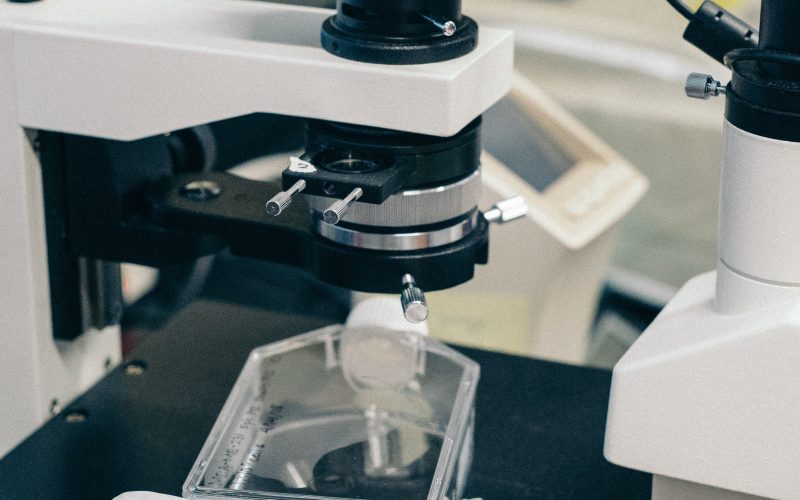Technology has come a long way since the invention of the wheel, and with each passing day, we continue to witness groundbreaking innovations that redefine our world. One such innovation is deep tech, which involves developing technologies that push beyond conventional boundaries. In recent years, synthetic biology has gained traction in this field as scientists explore ways to merge it with deep tech for even more ambitious projects. From cyborgs to biobots, this intersection holds endless possibilities for emerging technologies that could change the course of humanity forever.
From Cyborgs to Biobots: The intersection of Deep Tech and Synthetic Biology in Emerging Technologies
The intersection of deep tech and synthetic biology has given rise to a new generation of technologies that are pushing the boundaries of what we thought was possible. One such technology is cyborgs, which are beings that combine biological and technological elements.
These half-human, half-machine entities have been imagined in science fiction for decades but are now becoming a reality. Thanks to advances in deep tech and synthetic biology, scientists can create electronic implants that interface with human cells for improved functionality.
Another emerging technology at the intersection of deep tech and synthetic biology is biobots. Unlike cyborgs, these creations are entirely made up of living cells and tissues. Biobots hold immense potential as they could be engineered to perform specific tasks like detecting toxins or responding to environmental changes.
The combination of deep tech with synthetic biology also promises exciting advancements in healthcare. Scientists can use gene editing tools like CRISPR/Cas9 combined with machine learning algorithms for precision medicine treatments tailored specifically for individual patients.
The merging of deep tech with synthetic biology opens doors to an endless array of possibilities- from creating hybrid organisms capable of performing complex functions beyond our capabilities to advanced medical treatments personalized down every cell on an individual basis.
What is Deep Tech?
Deep Tech is a term used to describe advanced technologies that are based on scientific research and engineering. These technologies offer solutions to complex problems by using cutting-edge techniques such as artificial intelligence, machine learning, blockchain, and quantum computing.
Unlike other technological advancements, Deep Tech requires significant investment in research and development before it can be commercialized. The process of developing these technologies involves solving difficult technical challenges that require extensive knowledge and expertise.
Deep Tech has the potential to change the world as we know it by transforming industries such as healthcare, finance, energy, and transportation. For example, Deep Tech applications in healthcare have led to the development of personalized medicine that caters to an individual’s genetic makeup.
In summary, Deep tech represents a new era of innovation where technology is not just about entertainment but also serves practical purposes. With its immense potential for growth and impact on society at large; deep tech presents endless possibilities for advancement across various sectors thereby making our lives easier than ever before!
What is Synthetic Biology?
Synthetic Biology is a field of science that combines engineering principles with biology to design and create new biological systems or modify existing ones. It involves the construction of artificial biological parts, devices, and systems that can perform specific functions which are not found in nature.
At its core, Synthetic Biology aims to understand how living organisms work by creating new tools for studying them. These tools include synthetic DNA constructs, genetic circuits, and biomolecular machines which can be used for various applications such as environmental remediation, drug discovery or even bioenergy production.
One key aspect of Synthetic Biology is the ability to engineer cells to produce novel proteins using recombinant DNA technology. This technique enables researchers to manipulate genes at will in order to create novel biological pathways and functions.
Another important application of Synthetic Biology is in the development of biosensors which can detect specific molecules or changes within an organism’s environment. These sensors could potentially be used for monitoring water quality or detecting toxins present in food products.
Synthetic Biology holds great promise for developing innovative solutions to many pressing challenges facing our planet today. Its potential impact on fields such as medicine, energy production and environmental sustainability makes it one of the most exciting areas of research happening right now.
The Intersection of Deep Tech and Synthetic Biology
The intersection of Deep Tech and Synthetic Biology is where the two fields combine to create innovative and groundbreaking technologies. Deep Tech refers to advanced technology that requires significant expertise, resources, and time investment in research. On the other hand, Synthetic Biology involves engineering biological systems for specific purposes by combining biology and technology.
The integration of these two fields has led to the development of biobots – robots powered by living cells. These biobots can be programmed to perform complex tasks such as environmental monitoring or drug delivery. This revolutionary technology could have far-reaching implications in various industries including healthcare, agriculture, and environmental monitoring.
Moreover, this intersection has also given rise to cyborgs – organisms that have been enhanced with technological components. For example, brain-computer interfaces allow individuals suffering from paralysis or amputations to control robotic limbs through their thoughts.
Another exciting area of exploration at this intersection is CRISPR gene editing combined with machine learning algorithms for faster identification of disease-causing genes. The use of artificial intelligence in identifying genetic mutations can lead to personalized medicine solutions tailored specifically for each patient’s unique genomic makeup.
The intersection between Deep Tech and Synthetic Biology offers limitless possibilities for innovation across multiple industries. By harnessing the power of biology alongside cutting-edge technology we are creating a future where science fiction may become reality!
Emerging Technologies in Deep Tech and Synthetic Biology
Emerging Technologies in Deep Tech and Synthetic Biology are rapidly advancing as researchers continue to explore the possibilities of combining these two fields. One such technology is the use of biobots, which are hybrid machines made up of both biological and synthetic components.
Biobots have a wide range of potential applications, from environmental monitoring to medical diagnostics. For example, biobots could be used to detect pollutants in water sources or monitor changes in soil quality.
Another emerging technology is gene editing using CRISPR-Cas9, which has revolutionized the field of genetics research. This technique allows scientists to make specific changes to DNA sequences with unprecedented accuracy and efficiency.
In addition, artificial intelligence (AI) is being integrated into synthetic biology research. AI algorithms can analyze large amounts of data generated by experiments and predict outcomes more accurately than humans alone.
Finally, 3D printing is being used in conjunction with synthetic biology to create novel materials for various applications. This includes printing living cells that can grow into tissue or organs for transplantation.
The intersection between Deep Tech and Synthetic Biology offers exciting opportunities for innovation across multiple industries. As these technologies continue to advance, we can expect even more groundbreaking discoveries in the future!
Conclusion
The integration of deep tech and synthetic biology is opening doors to endless possibilities in emerging technologies. From cyborgs to biobots, the intersection of these two fields is bringing about new advancements that were once thought impossible.
As we continue to explore the depths of what technology can offer us, it’s important to keep an eye on how synthetic biology fits into this equation. The potential for creating more sustainable solutions and enhancing human abilities through biotechnology is incredibly exciting.
We must also consider the ethical implications that come with such developments and ensure that they are used for the betterment of society as a whole rather than just for individual gain. As we move forward, let us embrace this intersection between deep tech and synthetic biology with open minds and hearts.











